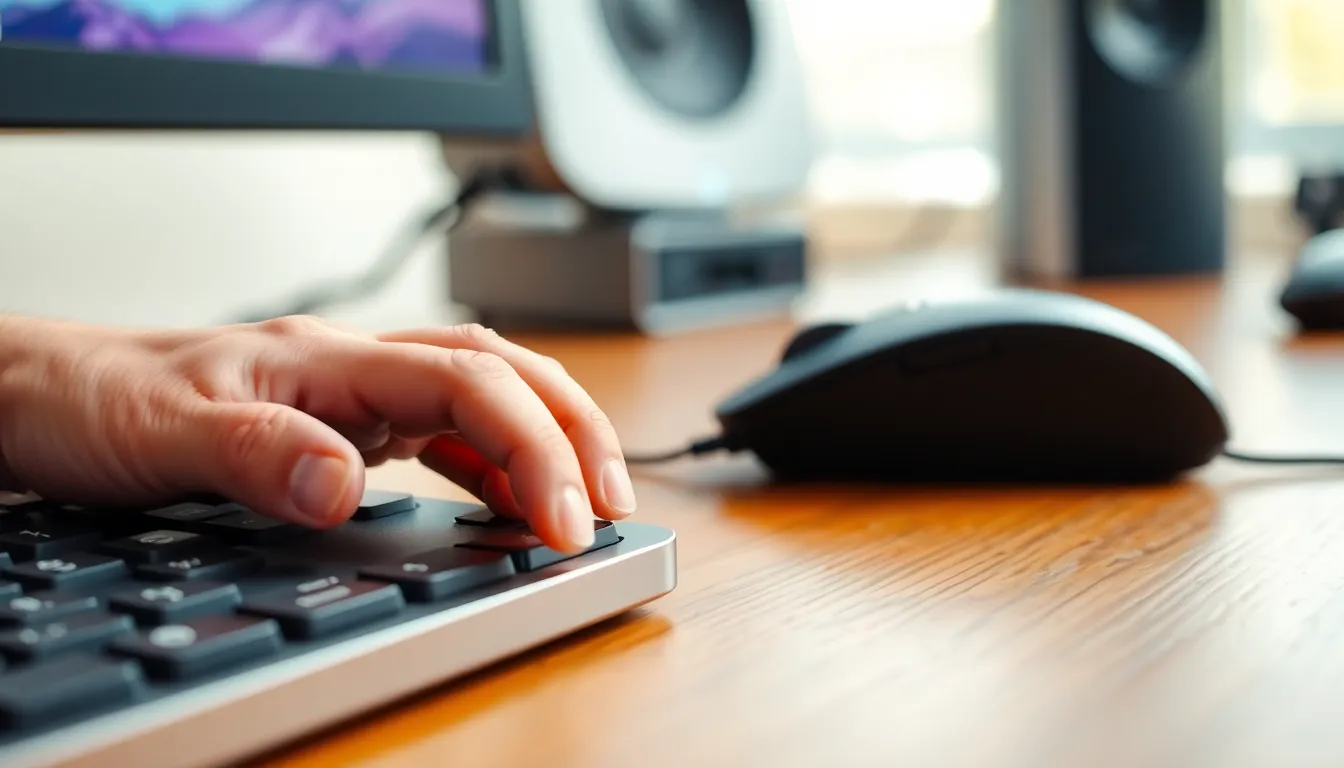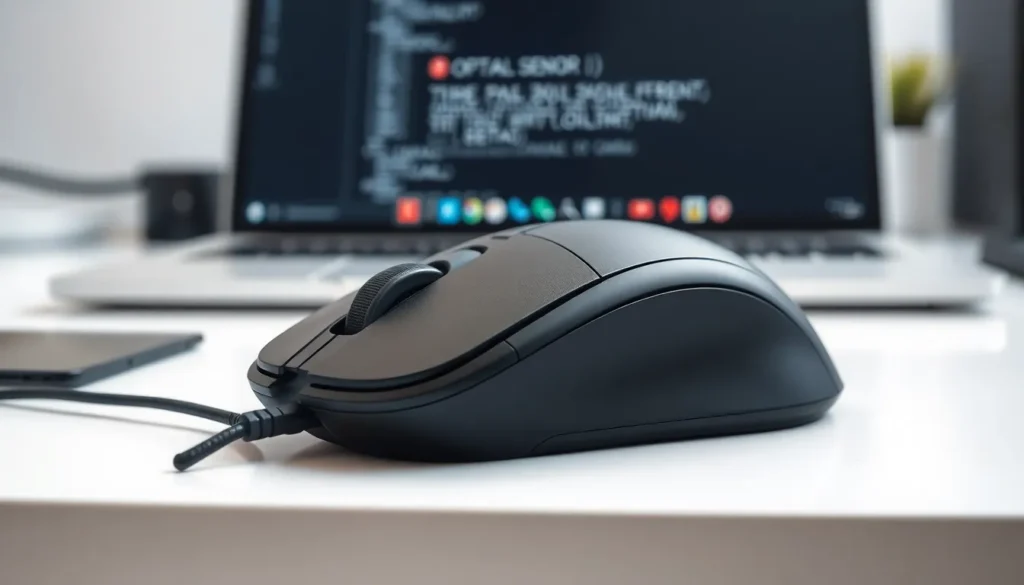Ever felt like your computer’s playing a game of tag with your cursor? You’re not alone. Many users experience that eerie sensation when their mouse seems to have a mind of its own. Whether it’s darting across the screen or performing unexpected clicks, it can turn a simple task into a mini horror movie.
Table of Contents
ToggleCommon Reasons for Cursor Movement
Unexpected cursor movement often stems from various hardware and software issues. Identifying these reasons can help users regain control over their devices.
Hardware Issues
Loose connections can lead to erratic cursor behavior. A damaged mouse or trackpad also causes unexpected movements. Battery problems in wireless devices create inconsistency in cursor control. Obstructions, such as dirt or debris on the sensor, interfere with precise tracking. Users experiencing these issues should inspect connections and clean surfaces regularly.
Software Glitches
Outdated drivers frequently contribute to cursor problems. Compatibility issues between software programs can create conflicts, resulting in erratic movements. Malicious software might alter mouse behavior, prompting unwanted clicks or movements. Users should regularly scan their devices for malware and update their software to ensure optimal performance. Frequent restarts of the system can also resolve temporary glitches.
Troubleshooting Steps

Identifying the cause of erratic cursor movement requires systematic troubleshooting. Follow these steps to resolve the issue.
Check for External Devices
External devices can significantly affect cursor behavior. Disconnect all peripherals, including additional mice and keyboards, to rule out conflicts. Testing with a different mouse might identify whether the original device is faulty. If the cursor operates normally after disconnecting, reconnect devices one by one to determine which is causing the problem. Keep an eye out for devices with loose connections or frayed cables, as they may disrupt performance. Additionally, ensure no foreign objects obstruct the sensor, particularly on optical mice.
Update Drivers
Updating drivers often resolves cursor issues. Outdated or corrupt mouse drivers lead to erratic movements. Visit the manufacturer’s website to download the latest drivers specific to the device model. Using device manager on Windows can also quickly update drivers; simply locate the mouse under the “Mice and other pointing devices” section and choose the update option. After completing the updates, restart the computer to ensure changes take effect. Regularly checking for driver updates maintains optimal functionality and can prevent future cursor problems.
Preventive Measures
Implementing preventive measures can minimize the risk of erratic cursor behavior. Regular upkeep and safe browsing practices play crucial roles in maintaining optimal mouse performance.
Regular Maintenance
Performing regular maintenance on hardware and software significantly reduces cursor issues. Clean the mouse periodically, focusing on the sensor and buttons to prevent dirt buildup. Inspect connections regularly to ensure peripherals are securely attached. Updating drivers should become a routine task; checking for updates every few months can prevent compatibility issues. Additionally, consider adjusting mouse settings within the operating system for optimal tracking speeds and sensitivity. Regularly scanning the system for malware protects against software-related problems that can cause erratic movements.
Safe Browsing Practices
Adopting safe browsing practices helps avoid malware infections that lead to unexpected cursor behavior. Using robust antivirus software to scan downloads and emails prevents malicious attacks. Avoid clicking on suspicious links or ads, as these often contain harmful software. Enabling pop-up blockers enhances security by reducing exposure to risky sites. Keeping the web browser updated ensures compatibility with the latest security features. Be cautious about downloading suspicious files; such downloads can introduce malware inadvertently. Safe browsing habits effectively protect the system and maintain smooth cursor functionality.
Unexpected cursor movement can be a significant annoyance for computer users. By understanding the common causes and implementing effective troubleshooting steps, it’s possible to regain control and enhance the overall experience. Regular maintenance and software updates play a crucial role in preventing these issues from recurring.
Adopting safe browsing habits and being proactive about hardware care can further minimize the risk of erratic behavior. With the right approach, users can ensure their mouse functions smoothly, allowing them to focus on their tasks without unnecessary distractions.





